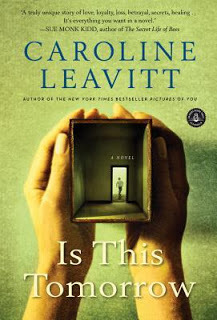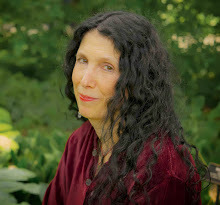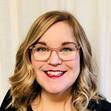Author Caroline Leavitt Talks About Her Characters’ Moral Issues, Working Backward, and Good Karma
This is one of those “why didn’t I think of that” interviews. I love those! Caroline Leavitt is a celebrated best-selling author and a generous soul who loves cowboy boots. Is there a better combination? I think not.
Two things in particular that struck me when interviewing Caroline. No matter how busy she was at the time, she read and answered my questions in record time. And the answers are gooood. Nothing run of the mill. Nothing without thought and meaning. The other thing was Caroline’s mention of karma. It’s true. In the writing world, what goes around comes around. Oh, okay, there were more than two things that stood out in this interview but you’ll have to read the rest for yourself.
Please welcome Caroline Leavitt to Women’s Fiction Writers.
Amy xo
Author Caroline Leavitt Talks About Her Characters’ Moral Issues, Working Backward, and Good Karma
 Amy: As a single mom, I am always drawn to stories about single mothers. What drew you to Ava? Where did she “come from?”
Amy: As a single mom, I am always drawn to stories about single mothers. What drew you to Ava? Where did she “come from?”
Caroline: I’m drawn to stories about single mothers, too–and to anyone who is struggling outside of the norm and is determined to make things work. I grew up an outcast in my neighborhood because I was Jewish (it was a Christian neighborhood), smart and sickly, but there was one family that was even more outcast–and that was this divorced mother who had a lot of boyfriends. None of our mothers wanted us anywhere near her or at her house, but she was sort of cool, and I grew to really emphathize with her.
Amy: Is there something specific you hope readers take away from Is This Tomorrow?
Caroline: The book is so much about paranoia and how and what it does to people. There’s some disturbing similarities between my fifties world and today. All you have to do is substitute the word “terrorist” or “Muslim” for “Communist” and you realize that fear of “the other” doesn’t go away. And it should.
Amy: You’re very active on Facebook, talking about writing and life. How does this help or hinder your writing?
Caroline: Oh, it definitely helps. I did most of my research through the contacts I made on Facebook and Twitter. All I had to do was post, “Does anyone know anyone who was a male nurse in the early 60s?” and I had three responses! I was connected up to a pastry chef from the fifties and a cop in the fifties, and those conversations were my favorite in the writing process.
Social media is also my water cooler. I’m so alone during the day when I write, that it makes me feel better if I can stop for just a few moments and connect with someone else. I disagree with people who say that social media is making us less intimate, because I’ve become good friends with so many people–met them outside for lunch, called them on the phone, the whole works!
Amy: I have a feeling I know the answer, but do you have a plan or system for writing your novels?
Caroline: Yep, yep, yep. About five years ago, a student of mine at UCLA loaned me her tapes for John Truby’s story structure classes. He’s a story guru who works out of L.A. primarily with movies, and his structure says the three act structure is not the best way to tell a great story, and neither is traditional screenwriting, with its plot points. He crafts stories on moral points–on what the character’s psychological and moral needs are. I thought my head would explode when I listened to the tapes because it was such an indepth way of telling story. I began to apply it to my novels, and using it, I had my first New York Times best seller. So I map everything out in advance. I have 30 page outlines. Of course, they change all the time as I am writing, but the basic idea of what the character wants and how I am going to get him or her to what he or she needs instead, is always there.
Amy: Or, if we can get more specific, how do you get started when you’re ready to start something brand new?
Caroline: First I figure out what the moral issue is that each character faces. By moral issue, I mean what is stopping them from leading the life they want or deserve, how are they hurting others and themselves? What’s their plan to get what they want and what thwarts them and why, and what are they wrong about at the beginning of the novel that they don’t even realize they are wrong about? I always know the ending, where the character is going to end up, and sometimes I work backwards from that point, almost as if I am unspooling the character. Most of my work is character work.
Then I spend about 6 months on a detailed 30 page outline where I map out the whole story. I show it to three or four other writers and they usually have a million comments about what isn’t working, what doesn’t make sense, and I get back to work on it revising.
When I feel that I have that, I write the all important first chapter. It’s important for me because if I have a good first chapter, then it acts as proof that I can write this book! If the chapter grabs me then I know when I am in the middle of the book and floundering and wondering if I should have gone to dental school instead of be a writer, that this chapter is proof that I am on the right track! Writing that first chapter takes months, but once it’s there, it’s there.
Amy: There’s a lot of scuttlebutt about the term “women’s fiction.” How do you feel about it? And is there a women’s fiction definition you’re comfortable with? (For the record, the term doesn’t bother me, which might be obvious based on the name of this blog!)
Caroline: Oh, I loathe the term women’s fiction and refuse to use it. If anyone asks me to label myself, I call myself a literary writer. Is there a term “men’s fiction?” No, because the implication is that everyone reads what men write, but only women–and a certain kind of woman–would read women’s fiction. And that’s imply not true. I always say that when women write about domestic issues, it’s labeled as women’s fiction, but if men do it, why then they are Jonathan Franzen. It’s clear that women are not getting as many reviews as men in the literary world, or as much respect, and I think women have to fight not to have those soft-focus covers and to resist the term women’s fiction and chick lit and any other label. I wish a good book could just be a good book.
Amy: What’s your best advice for aspiring authors of women’s fiction (or whatever you prefer to call it)?
Caroline: My best advice to aspiring authors is to never, ever give up. You never know what’s going to happen and it took me 9 books to have any sort of success, which came at a point when I thought my career was over. Get Poets & Writers and apply to every contest and send out your work. Help other writers in every way you can, because that’s how you build community, plus it’s excellent karma!
Amy: Which cowboy boots are you wearing right now?
Caroline: I’m actually wearing black sneakers, but I’m taking my floral Old Gringos on the road with me!
 My l0th novel IS THIS TOMORROW (Algonquin Books) is a May Indie Pick! I’m also the New York Times bestselling author of PICTURES OF YOU (Algonquin), which sold to 6 countries, went into 5 printings, and was a San Francisco Chronicle Lit Pick, a Costco “Pennie’s Pick” and a NAIBA bestseller. Pictures of You is also a USA Today ebook bestseller and is on the Best Books of 2011 List from San Francisco Chronicle, Providence Journal, Kirkus Reviews and Bookmarks Magazine. It’s also one of Kirkus Reviews Top 5 books of 2011 about the Family and love. I’m the recipient of a New York Foundation of the Arts Grant in Fiction. I was a 2013 finalist in the Sundance Screenwriting Lab and a finalist in the Nickelodeon Screenwriting Fellowship, four of my novels were optioned for screen, and I talked my way into writing the script for two of them. My essay, HIgh Infidelity, has been optioned for film. I’m a book critic for The Boston Globe and People Magazine. I teach novel writing for UCLA and Stanford online, do private fiction editing, and I am a professional namer! I live with my husband and son. Visit me at http://www.carolineleavitt.com.
My l0th novel IS THIS TOMORROW (Algonquin Books) is a May Indie Pick! I’m also the New York Times bestselling author of PICTURES OF YOU (Algonquin), which sold to 6 countries, went into 5 printings, and was a San Francisco Chronicle Lit Pick, a Costco “Pennie’s Pick” and a NAIBA bestseller. Pictures of You is also a USA Today ebook bestseller and is on the Best Books of 2011 List from San Francisco Chronicle, Providence Journal, Kirkus Reviews and Bookmarks Magazine. It’s also one of Kirkus Reviews Top 5 books of 2011 about the Family and love. I’m the recipient of a New York Foundation of the Arts Grant in Fiction. I was a 2013 finalist in the Sundance Screenwriting Lab and a finalist in the Nickelodeon Screenwriting Fellowship, four of my novels were optioned for screen, and I talked my way into writing the script for two of them. My essay, HIgh Infidelity, has been optioned for film. I’m a book critic for The Boston Globe and People Magazine. I teach novel writing for UCLA and Stanford online, do private fiction editing, and I am a professional namer! I live with my husband and son. Visit me at http://www.carolineleavitt.com.


Women's Fiction Writers
- Amy Sue Nathan's profile
- 543 followers



